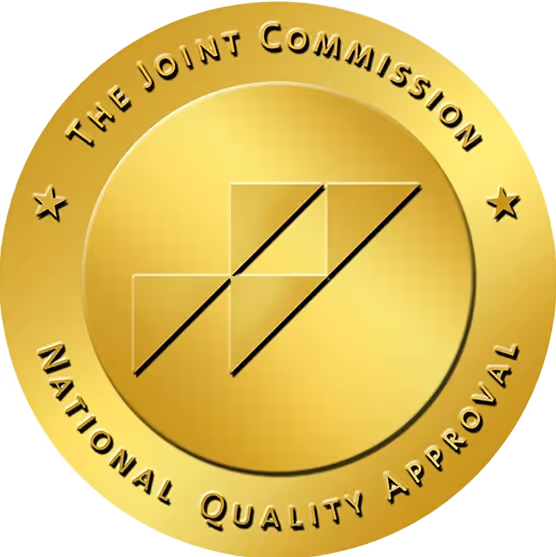Have you ever wondered if a glass of wine really counts as a drug? It’s a fair question, and the answer might surprise you.
A drug is any substance that changes the way your body or brain works. It can shift how you feel, how quickly you react to situations or events happening around you, or how clearly you think. By that definition, alcohol is a drug. And like many drugs, it carries real risks.
What Is a Drug and Where Does Alcohol Fit In?
A drug is any psychoactive substance. When consumed, it affects your mood, your perception of the world around you, and your brain function. Some drugs or substances are illegal; others are prescription medications, only available with a medical professional’s say-so.
And then there’s alcohol: it’s legal, it’s widely available if you’re of age, and it’s socially accepted. Yet alcohol checks all the “drug” boxes:
- It changes how you feel and behave
- It slows down brain activity
- It can lead to dependence
But since drinking is so normalized, many people don’t think of it this way. It’s easy to forget that, on a chemical level, alcohol is similar to sedatives and other controlled substances.
How Alcohol Affects the Brain and Body
Alcohol is a central nervous system depressant. It slows down how your brain and body communicate. The more you drink, the more those signals get jammed. This affects several parts of the brain, including:
- The prefrontal cortex, which controls judgment
- The hippocampus, which affects memory
- The cerebellum, which supports balance and coordination
If you drink often, your brain starts adjusting to its presence. You might need to drink more and more alcohol to feel the same effect: this is known as tolerance. This can lead to heavier drinking as time goes on. And with that, greater health risks.
Meanwhile, internally, your liver is working hard to break down alcohol. But it has limits. Drinking too much too often can lead to damage: inflammation, scarring, and diseases like hepatitis or cirrhosis.
Does Alcohol Kill Brain Cells?
We’ve all heard it, but this one…is actually a myth. Alcohol doesn’t directly kill brain cells. However, it does damage the way brain cells communicate, and long-term use can shrink parts of the brain and weaken your thinking. The effects are especially harmful during brain development in younger people.
Short- and Long-Term Effects of Alcohol Use
Short-term effects:
- Slowed reflexes
- Mood changes
- Blurred vision
- Nausea or vomiting
- Memory lapses (blackouts)
Long-term effects:
- Liver damage
- High blood pressure
- Depression or anxiety
- Increased cancer risk
- Lasting brain changes
Why Alcohol Is Addictive
Alcohol boosts dopamine, a feel-good chemical, and increases GABA, which helps you relax. In the moment, this can feel calming or even euphoric. But over time, the brain learns to rely on alcohol for balance.
This cycle often leads to:
- Cravings and wanting more
- Withdrawal symptoms
- Emotional and physical dependence
Alcohol vs. Other Drugs: Which Is More Dangerous?
People often think of heroin or meth as more dangerous than alcohol. But alcohol is responsible for more deaths worldwide than many other substances.
Part of what makes alcohol risky is how widely accepted it is. That normalcy masks problems like binge drinking or drinking every day. It becomes easy to overlook when things go too far.
Common Signs of Alcohol Use Disorder
How does one tell if alcohol has become a problem? There are signs you can look out for, either in your own behavior or in that of a loved one, that could signal a deeper issue. And when it comes to getting help and preventing damage, spotting the signs early on can make a big difference. Here’s what to watch out for:
- Drinking more than planned
- Wanting to stop, but struggling to
- Spending large chunks of time drinking or recovering
- Having strong urges to drink
- Trouble at work, home, or in relationships
- Needing more alcohol to get the same effect
- Feeling sick, shaky, or anxious when you haven’t had a drink
The Numbers: How Many People Struggle with Alcohol
The impact of alcohol use worldwide is staggering. We mentioned earlier that alcohol is more dangerous than many of the drugs we think of when we hear the word “addiction,” but you don’t have to take our word for it. Here’s what the data shows:
- Around 2.6 million deaths were linked to alcohol in 2019
- Roughly 400 million people live with alcohol use disorders
- 209 million meet the criteria for alcohol dependence
- Alcohol is connected to over 200 diseases and health conditions
Even low-level drinking carries a risk. But most alcohol-related harm comes from heavy or frequent use.
Concerned About Drinking? Recovery Is Possible
If you’re questioning your relationship with alcohol, that’s already a strong first step. Support is out there, and so is healing. Whether you’re feeling overwhelmed or just want to make a change, treatment can meet you where you are with no judgment.
You might explore:
- Cognitive-behavioral therapy or dialectical behavior therapy to help shift patterns and build coping skills
- Medication-assisted treatment to ease your cravings during the withdrawal stage and support stability
- Virtual or in-person treatment options like detox or rehab programs, personalized to fit your routine
Recovery doesn’t have to be perfect. It just has to start. And you don’t have to do it alone.





